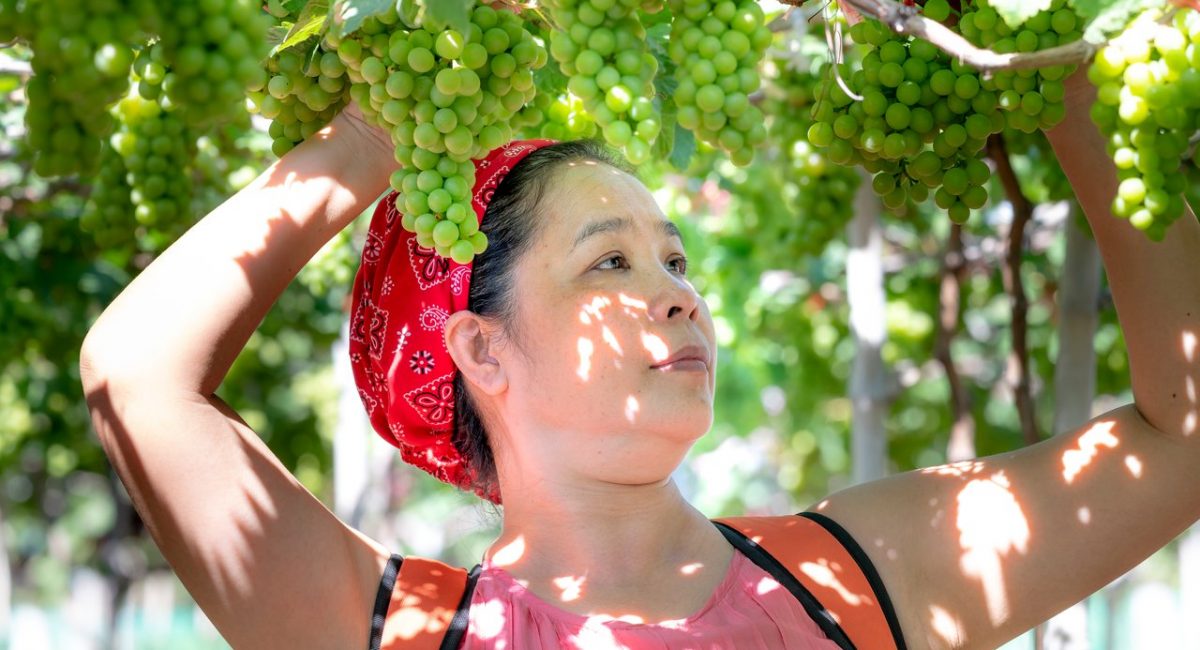Cycle A | ORDINARY TIME | WEEK 27
REFLECTION
– By Fr Ugo Ikwuka
Archway, London
When people fall in love, they call each other pet names e.g. honey, sugar, pumpkin etc. Similarly, in the love poem from Isaiah which is our First Reading this Sunday, God called His beloved people His ‘vineyard’ and understandably so because just as people invest so much in their loved ones, a lot goes into the cultivation of vineyards. There is the clearing of the field, the tilling of the soil, the planting, the hedging, the trenching, the fencing, the building of a winepress, the pressing of the grapes which eventually leads to the production of vintage wine that cheers the heart.
Israel was the beloved of the Lord, the Chosen People, whom God had freed from captivity of slavery and led to the Promised Land. Sadly, however, they behaved like prostitutes, flirting with the pagan gods of other nations and becoming unfaithful to the words of their covenant with God. God was therefore the heartbroken lover heard lamenting in the poem: “What could I have done for my vineyard that I have not done? I expected it to yield good grapes. Why did it yield sour grapes instead?” The poem ends in tragedy as bloodshed and oppression are found instead of the expected good fruits.
Through baptism, we Christians, like the Jews of old, are equally adopted children of God. And we have received even more. We have the revelation of God in two testaments (Old and New). We additionally have a rich spiritual tradition including the creed, the sacraments, the church fathers and mothers, the lives of the saints, the many holy places. To whom much is given, much is expected. As God’s divine projects, to what extent have we borne fruits of the kingdom; love, integrity, justice, peace etc.

Or have we become instead like the tenants to whom the vineyard was leased in the Gospel parable but who not only failed to make the expected returns but rejected the landowner’s messengers (God’s prophets) including his son (Jesus) whom they even killed. It was a situation that prompted Jesus to lament as he advanced towards Jerusalem and was told that Herod wants to kill him: “O Jerusalem, Jerusalem, who kills the prophets and stones those sent to her, how often I have longed to gather your children together as a hen gathers her chicks under her wings, but you are unwilling” (Luke 13:34).
The Declaration on the Relation of the Church with Non-Christian Religions (Nostra Aetate of Vatican II) acknowledged that Jerusalem did not recognize the time of her visitation, nor did the Jews in large number accept the Gospel; indeed not a few opposed its spreading.”* Yet, while we rejoice as Christians that we are the living fulfilment of the prophecy: “The stone that the builders rejected has become the cornerstone” (Matt. 21:42), we must note that we risk being dislodged also if the vineyard of the Lord does not bear fruit on our watch. Over the centuries and extending even to our time, many prophets have been rejected, abused and even killed in our Christian communities. We think of Bishop Oscar Romero, Martin Luther King, the countless victims of violence and oppression in Central and South America, Africa, Northern Ireland. Most of these martyrs were killed not by pagans but by fellow-Christians, tenants in the Lord’s vineyard.
As a society, haven’t we also done away with Christ? Not long ago, the former British Prime Minister Tony Blair once wanted to share something of his Christian faith and he was interrupted by his director of strategy and communications Alistair Campbell who promptly cautioned him: “We don’t do God”.
Following the flattening of the Covid-19 curve in his beleaguered state of New York, Governor Andrew Cuomo, at a press briefing on Monday 13th April 2020, declared: “God did not do that. Faith did not do that. Destiny did not do that. A lot of pain and suffering did that … That’s how it works. It’s math.” History is often changed by seemingly innocuous statements. A relatively obscure German philosopher Friedrich Nietsche wrote “God is dead” and 60 years later, the Nazi regime which explicitly embraced Nietsche’s thinking was attempting to exterminate the Jewish race in the Holocaust.
Elsewhere, someone complained that we should do away with prayers in public schools, and we said OK. A child was stopped from reading his favourite bible story in class and yet students can bring in copies of the Vogue and Vanity Fair magazines. But when you stop reading the Bible that teaches: “Thou shalt not kill, thou shalt not steal, thou shalt love thy neighbour as thyself”, there’ll surely be consequences and we are already experiencing it. Today we are asking ourselves why our children have no conscience, why they don’t know right from wrong, why it doesn’t bother them to fatally harm others and themselves.
If a society keeps saying ‘Away with God! Away with God!’ it gets to a point where God says: “Have it your way” and everyone does what appeals to them. But, as Paul cautioned in Galatians (6:7): “Be not deceived, God is not mocked; for whatever a man sows, that shall he also reap!” The inevitable result of a world that has rejected God and his messengers is wild grapes; aridity, lifelessness, violence. St. John Paul the II calls it the culture of death. As Proverbs 14:12 makes clear, “That way which seems right to man leads to death!”
The first thing we might notice about the landowner in the parable is that having done all that he could for his vineyard, he “went into a far country”. When it seems to us that God is far off, it is not for us to shirk our duties. The time of harvest, the day of reckoning must come. Shall we be ready? Jesus, the now-vindicated Risen Lord addresses each of us as tenants of God’s vineyard today. Do we at times forget that we are only tenants, and, imagining ourselves as owners, do we do as we please? The prayer of our liturgy today is that we will receive the grace to open our hearts to the prophetic voice of Jesus and become a people who produce abundant good fruit in accord with God’s will.




